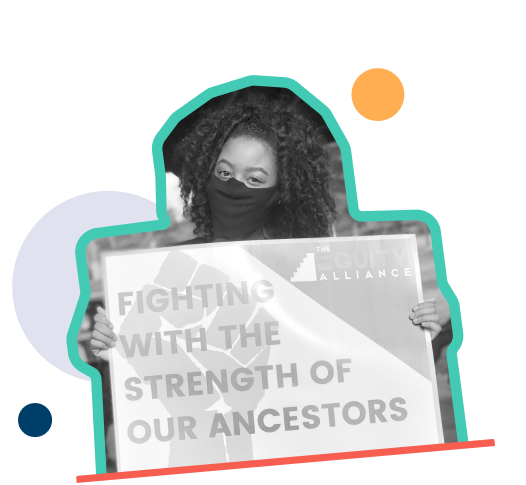To honor Black histories and futures, Neighborhood Funders Group is excited to share with you a new report from Funders for a Just Economy and the Amplify Fund on the critical Black women-led organizing redefining Nashville, Tennessee. The first report for our multi-city Building Power in Place project, Nashville: Reshaping the City Towards an Economy for All, tells a small part of a big story. The report features the work of Stand Up Nashville (SUN), The Equity Alliance (TEA), and the Central Labor Council of Nashville & Middle Tennessee (CLC) — each helmed by Black women who have built a powerful collaborative infrastructure with few resources but tremendous political and economic results for low-income residents of color. Quite relevant for the early 100 days of a new presidential administration, their work addresses the importance of elections and goes far beyond these moments for a much broader vision of shared governance.
Black History Month is as much about honoring the past as it is about recognizing the way Black communities continue to define a future that is radically more equitable, sustainable, and democratic for all. This report traces the ways in which Nashville organizers have built on local histories of abolitionist and civil rights activism, while developing expansive new models confronting issues like predatory gentrification following climate disasters. How have SUN, TEA, and CLC achieved such milestones as record registration of voters of color, landmark transparency and accountability laws, growth in worker voice, and more? How do they face obstacles like repressive state preemption policy and corporations like Amazon with deep pockets? Learn more here.
NFG’s commitment to place-based organizing is informed by an approach to Black history and futures stemming from Black feminist movements and scholars. They recognize no one formula, story, or sequence for transformative movements which are in fact rooted in local realities, multi-faceted struggles, and, as Angela Davis explains, constant efforts to “enlarge and expand and complicate and deepen our theories and practices of freedom.” The responsibility of NFG as a network of funders starts, then, right at the local — in trusting grassroots expertise, recognizing intersectional realities (including our own implication in racial capitalism), and moving maximal resources to support Black-led movements’ expansive vision.
The recommendations in our Nashville report stem from conversation with local organizers and funders and through Amplify’s long-term work, and offer key principles that can apply nationally. But as Fannie Lou Hamer noted, “There is one thing you have got to learn about our movement. Three people are better than no people." It’s going to take much more than recognizing these movements; it will take organizing our colleagues in and across our institutions to join in fully funding Black-led movements like those in Nashville, especially the ones that may not even have the resources to get on national radar. So make sure to share the report with colleagues, invite another funder to our next events (more information in this month's newsletter), and keep bringing new folks to the conversation!
Thank you to the SUN, TEA, and CLC organizers and local funders who shared their time, stories, and strategies with us. Going forward, NFG will continue to strengthen the ways we move from intention into action to honor Black histories and support Black futures from the local and up.
Thank you,
Rob, Manisha, and Neda — Funders for a Just Economy
